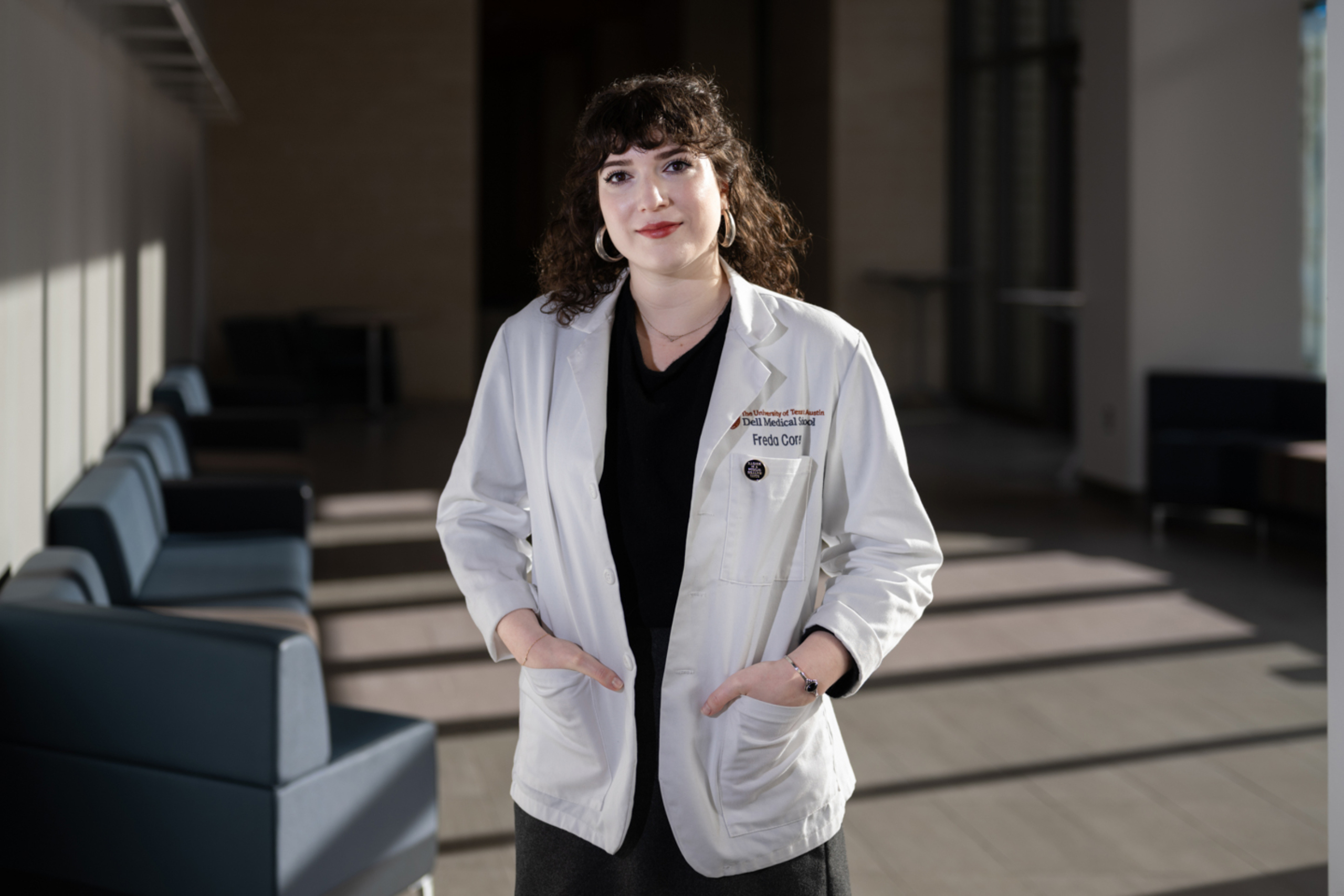“Without hearing people’s stories and perspectives in their own words, we can’t adequately address their needs and the full spectrum of their personhood.”
This motto has been the guiding force of Freda Coren’s research over the past year and beyond. Coren, a member of Dell Medical School’s Class of 2025, credits her motivation to improve the care of underserved communities to her background in medical anthropology and her knowledge of public health — both of which she is putting to use through a research-focused approach to harm reduction.

Freda Coren, Dell Med ‘25
The Road to Research
As an undergraduate, Coren learned how the social, political and cultural environments of a person’s life shape immediate and long-term health outcomes when she began working at the New York State Department of Health at the AIDS Institute.
“I was inspired by people living with HIV whom I worked with — pioneers in advocating for their own health and survival — and by the physicians I worked with who stood alongside their patients and pushed for systemic change,” Coren says.
Coren chose to continue working and studying in HIV care as a medical student. For the past two years, she’s been training at Vivent Health, an HIV primary care clinic in which she has learned not only how to treat HIV and other chronic conditions, but also act as part of an interdisciplinary team that addresses the social and economic needs of patients.
And for her third year of study at Dell Med — known as the Growth Year — Coren undertook a research distinction project titled “Chemsex & Health: Evaluating the Meaning of Substance Use and Sex (CHEMSS),” aiming to improve care for people of color who live with HIV.
Putting Plans Into Action Through Connection
The project’s qualitative design was conceived with the help of Phillip Schnarrs, Ph.D., associate professor in Dell Med’s Department of Population Health and Coren’s mentor in the Institute for Collaborative Health Research. The goal was to understand why some men in the LGBTQ+ community use certain substances during sexual encounters.
Few public health or community-based interventions that target this practice exist. Coren’s research uses in-depth interviews to understand the practice itself and how a harm reduction approach can be most helpful. Harm reduction is a philosophy and set of strategies in public health with a focus on meeting people where they are to help ensure their health and safety.
“Besides producing research, this project will be a launching point for developing specific interventions informed by the needs and preferences of members of this community,” Coren says.
A Lasting Impact
An additional dimension of the project are the downstream effects of trauma and adverse childhood experiences, which Coren has been able to explore through opportunities enabled by her mentors, including Schnarrs and Aliza Norwood, M.D., associate professor in Dell Med’s Department of Internal Medicine and medical director of Vivent Health.
Looking outside Austin for voices, Coren has worked with the team behind Poderosos, an HIV and sexual health advocacy group for LGBTQ+ and Latina/o/x people in the Rio Grande Valley. Through this outreach, Coren has been able to include participants from an understudied and medically underserved region of Texas.
“We have had a unique opportunity to over-sample Latino and Black participants in our study, helping to fill a significant gap in research,” Coren says. “It is a privilege to pursue research and scholarship during my medical training, and to learn from our interview participants’ unique stories and perspectives in pursuit of improving their health and lives.”